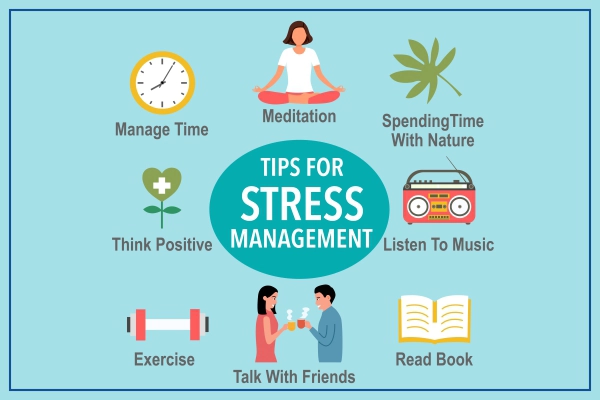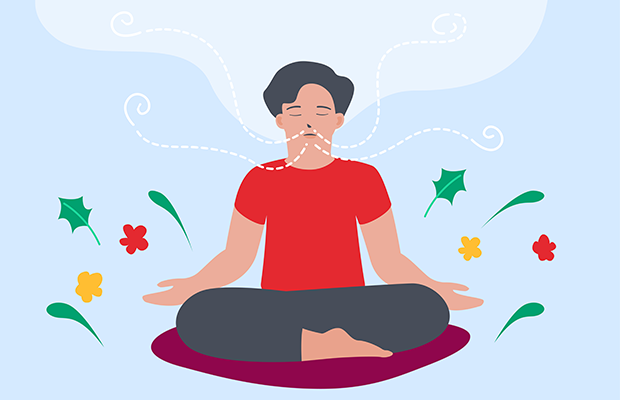
Introduction
In today's fast-paced world, stress is an unavoidable part of life, especially for busy professionals who are constantly juggling work, family, and personal responsibilities. The impact of stress on health, productivity, and overall well-being cannot be ignored. Therefore, it is crucial for busy professionals to prioritize stress management to maintain a healthy balance in their lives. In this article, we will explore 7 effective stress management techniques that can help busy professionals navigate their hectic schedules with ease.
1. Prioritize Time Management
Time management is essential for busy professionals to stay organized and focused amidst a sea of tasks and deadlines. By prioritizing tasks and responsibilities, professionals can ensure that important tasks are completed efficiently. Utilizing tools such as calendars and to-do lists can help in tracking tasks and setting deadlines. Setting realistic goals and avoiding procrastination are key strategies for effective time management.
2. Practice Mindfulness and Meditation
Mindfulness and meditation have gained popularity as effective stress management techniques in recent years. By focusing on the present moment and cultivating awareness, busy professionals can reduce stress and improve mental clarity. Starting with short mindfulness sessions and incorporating meditation into daily routines can have a profound impact on overall well-being.

3. Exercise Regularly
Regular exercise is not only beneficial for physical health but also plays a crucial role in reducing stress and anxiety. Busy professionals can incorporate exercise into their schedules by finding activities that can be done in short bursts or during breaks. Whether it's a quick walk, a yoga session, or a workout at the gym, regular exercise is a powerful stress management tool.
4. Practice Deep Breathing and Relaxation Techniques
Deep breathing and relaxation techniques are effective ways to calm the mind and body during stressful situations. Progressive muscle relaxation, guided imagery, and deep breathing exercises can help busy professionals alleviate stress and promote relaxation. By practicing these techniques regularly, professionals can increase resilience to stress and improve overall well-being.

5. Establish Healthy Habits
Maintaining healthy habits such as proper nutrition and adequate sleep is essential for managing stress effectively. Meal planning, mindful eating, and staying hydrated can support overall well-being and reduce the impact of stress on the body. Getting enough sleep and practicing good sleep hygiene are crucial for mental clarity and emotional resilience.
6. Seek Support and Connection
Seeking support from friends, family, or mental health professionals is important for busy professionals facing high levels of stress. Cultivating supportive relationships and building a strong social network can provide a sense of belonging and comfort during challenging times. Connecting with others, sharing experiences, and seeking help when needed are crucial for managing stress effectively.
7. Take Breaks and Practice Self-Care
Taking breaks and practicing self-care activities are essential for preventing burnout and maintaining well-being. Incorporating relaxation techniques, hobbies, and self-care practices into daily routines can help professionals recharge and rejuvenate. By prioritizing breaks and self-care, busy professionals can enhance their productivity and overall quality of life.
Conclusion
In conclusion, stress management is a critical component of maintaining a healthy balance for busy professionals. By prioritizing time management, practicing mindfulness and meditation, exercising regularly, and incorporating deep breathing and relaxation techniques, professionals can effectively reduce stress levels. Establishing healthy habits, seeking support and connection, and taking breaks for self-care are essential strategies for managing stress in the long run. By implementing these 7 stress management techniques, busy professionals can achieve greater well-being, productivity, and overall satisfaction in both their personal and professional lives.
FAQs
Q: Why is time management important for busy professionals in stress management?
A: Time management helps busy professionals stay organized, prioritize tasks, and meet deadlines efficiently, reducing stress levels.
Q: How can mindfulness and meditation help busy professionals manage stress?
A: Mindfulness and meditation techniques promote present moment awareness, reduce stress, and enhance mental clarity for busy professionals.
Q: How does regular exercise benefit busy professionals in stress management?
A: Regular exercise not only improves physical health but also reduces stress and anxiety levels, making it a crucial stress management tool.
Q: What are some deep breathing and relaxation techniques that busy professionals can use to alleviate stress?
A: Progressive muscle relaxation, guided imagery, and deep breathing exercises can help busy professionals calm their minds and bodies during stressful situations.
Q: Why is it important for busy professionals to establish healthy habits like proper nutrition and adequate sleep for stress management?
A: Healthy habits like nutrition and sleep support overall well-being, reduce the impact of stress, and promote mental clarity and emotional resilience.
Q: How can seeking support and connection help busy professionals manage stress effectively?
A: Seeking support from friends, family, or mental health professionals can provide comfort, a sense of belonging, and help in managing stress during challenging times.
Q: Why is taking breaks and practicing self-care essential for busy professionals in stress management?
A: Taking breaks, engaging in self-care activities, and prioritizing relaxation help prevent burnout, recharge energy, and enhance overall well-being and productivity.


0 Comments